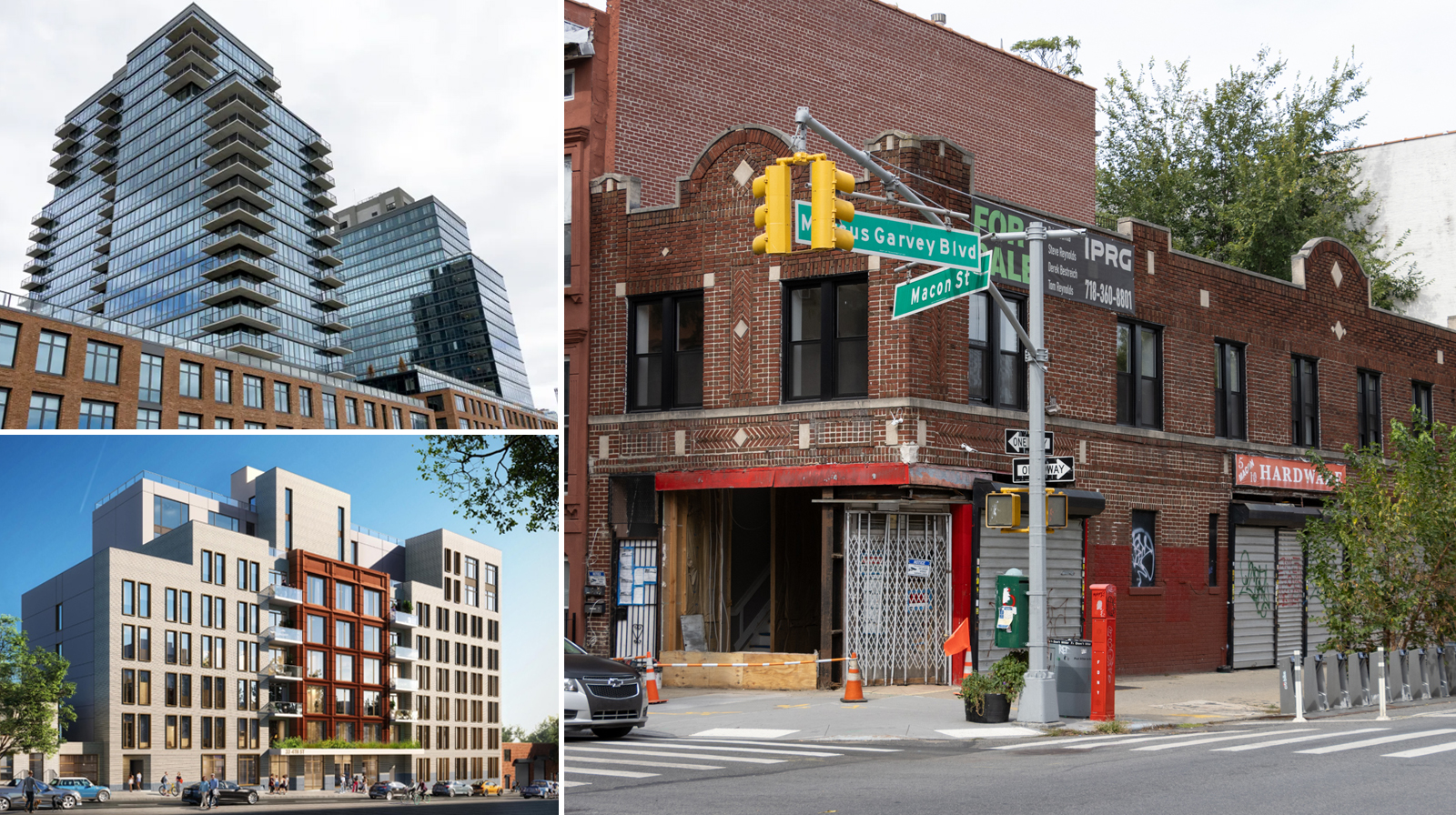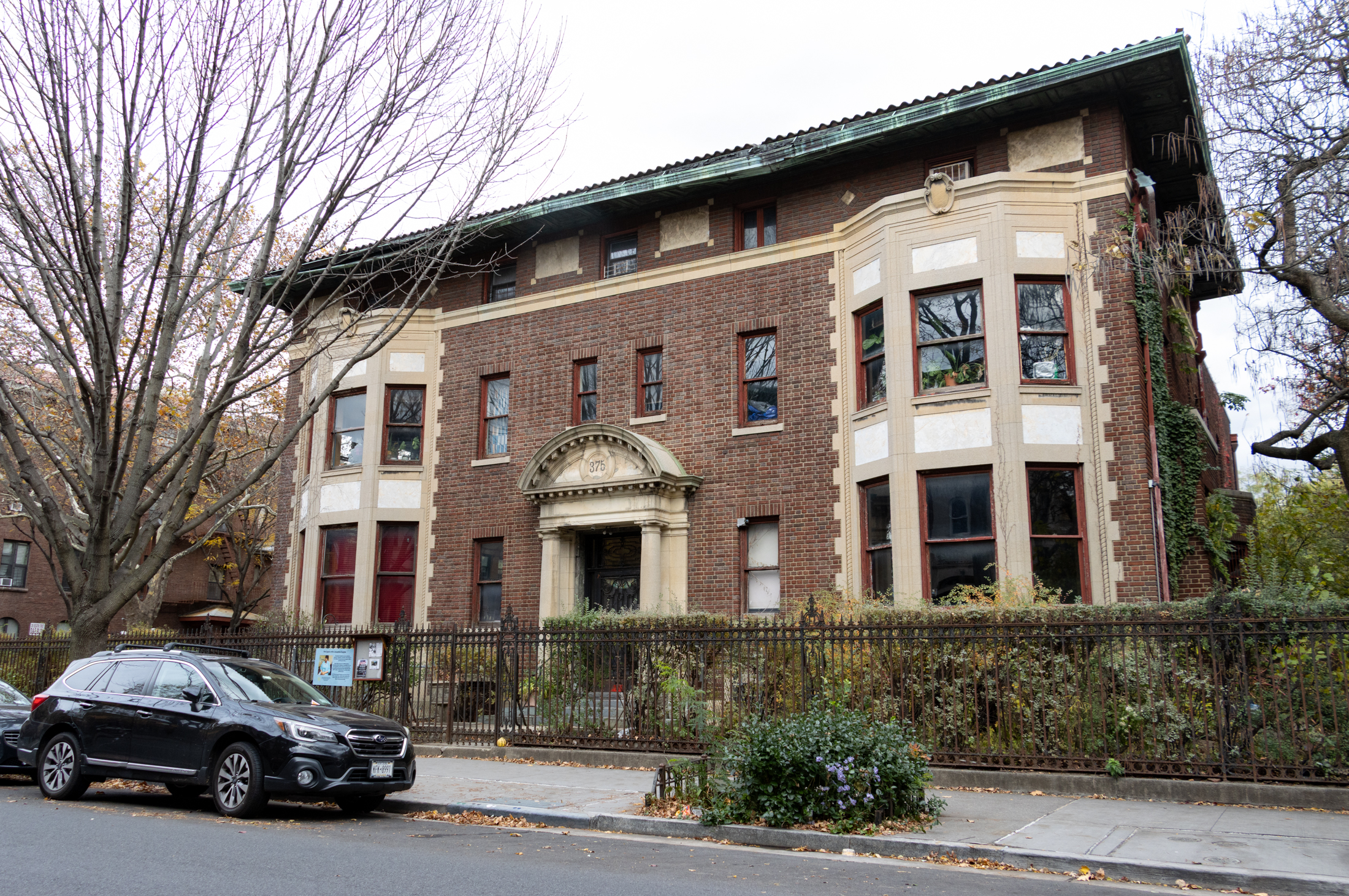Pinching Pennies To Save Up for a Down Payment
This week’s cover story in the New York Times real estate section is about people who’ve scrimped and sacrificed— sometimes for years— to save up enough money for the down payment on their first home. One guy survived for an entire year on a daily diet of a $2.95 chicken special and a 99-cent coke;…

 This week’s cover story in the New York Times real estate section is about people who’ve scrimped and sacrificed— sometimes for years— to save up enough money for the down payment on their first home. One guy survived for an entire year on a daily diet of a $2.95 chicken special and a 99-cent coke; another woman started drinking only at happy hours. It’s notoriously hard to save from paycheck to paycheck in New York City; we were lucky that a real estate deal we worked on back in 1999 paid off well enough a few years later to enable us to come up with the downpayment on our house. (That, and we had the good fortune to flip a couple of one-bedrooms in Manhattan between 1997 and 2000, when we cashed out thinking the market had peaked! Got that one wrong, huh?) There must be lots of tales of self-deprivation in the name of nest-egg building. Anyone care to share?
This week’s cover story in the New York Times real estate section is about people who’ve scrimped and sacrificed— sometimes for years— to save up enough money for the down payment on their first home. One guy survived for an entire year on a daily diet of a $2.95 chicken special and a 99-cent coke; another woman started drinking only at happy hours. It’s notoriously hard to save from paycheck to paycheck in New York City; we were lucky that a real estate deal we worked on back in 1999 paid off well enough a few years later to enable us to come up with the downpayment on our house. (That, and we had the good fortune to flip a couple of one-bedrooms in Manhattan between 1997 and 2000, when we cashed out thinking the market had peaked! Got that one wrong, huh?) There must be lots of tales of self-deprivation in the name of nest-egg building. Anyone care to share?
Every Penny Counts [NY Times]





Sometimes I get extremely envious when hearing how people got funding from their parents to help purchase their home. But then I remember that my quest to save was afforded by living with my parents for the better part of my twenties in order to save. They couldn’t afford to outright give me money, but I essentially lived rent free far out in Queens while my friends rented cool city apartments. Now, most of those same friends are still renting while I own a great 1-bdrm condo in dumbo. It took a lot of patience and sacrifice… at times feeling like I was missing out on the feeling of independence and hating my commute. But nothing beat the feeling of turning the key to my very own home (in a neighborhood I love) when I finally got it.
So thanks Mom and Dad… you couldn’t give me the money, but you helped me in your own way.
Best of luck to all those trying to get their foot in ‘their own door’.
it took years…:
Everyone can define “significantly stack the deck” differently, but suppose 10% of buyers in NYC, or 20%, or whatever, are people who wouldn’t be able to buy without their parents. That’s that many more people in the buyers’ pool, and more buyers + same supply = higher prices.
It’s no skin off my back either because I bought my first home more than 10 years ago, but there’s no way that can’t make a difference.
3:05, to your second point:
The parental housing leg-up used to make me crazy. I was constantly measuring myself against my “peers” who owned. It was only when I found out how they came to be owners that I was able to relax (a little bit). There is absolutely nothing you do to change the circumstances of your upbringing. You’re either born into money, or you’re not. The one thing we all can control (if we can’t say profession since this can be tied to opportunities which also go back to mom and dad) is how we handle our own bank accounts.
To say that parental help is signficantly stacking the deck against those who don’t have it may be a bit of a reach when it comes to NYC – a place where many people’s first time home purchase is a $1 million property. There are so many things stacking the deck against those of us who didn’t come from money and/or aren’t earing a s***load of it in our careers – mostly it’s the high-income brackets who can afford insane per sq. ft. prices and are able to pay maintenance fees higher than my old (and sadly quite high) Manhattan monthly rent on top of their financing.
If you parents aren’t buying your place for you outright, the majority of them are probably giving (or loaning or investing) part or all of your downpayment. My friends in the latter situation are solely responsible for their mortgages so they could only buy what they could “afford”. Their parents have truly helped them, but it’s up to the kids to keep the place.
We would have loved to have some help getting into the market, who wouldn’t? But one great consolation now is that nothing beats having done it on our own!
well considering that in new york it is more often the case that we put down 20%, a lot of us at least own 1/5 of our house.
i totally get what you’re saying, but in terms of comparing to the rest of homebuyers out there in the u.s., we “own” a lot more of our homes than most.
i’d have to say that living within your means would have to include some sort of incoming/outgoing cash ratio as well as factoring in debt.
if we are to to say that if you don’t own your home outright then you are not living within your means, then we would also have to conclude from that, that every renter does not live within their means by shear default that they own nothing.
which of course is not true.
Congrats to those who saved their own money to buy their own places. It’s a difficult but rewarding process, and makes living in NY easier in the long run.
Having said that, I’ll hopefully be giving my son help in buying an apartment, because he’s a good kid and I want him to do as well as he can. I never had that assistance, and don’t want him to have to go through the same hardships I experienced.
supergirl, you just blew. my. mind.
Just a general question,
If you need a mortgage for a house, co-op, etc., that you are not able to afford outright, do you consider that to be “living within your means?”
Or is the dream of “home ownership” really just a bill of goods?
I don’t have anything against parents lending their kids money to buy — mine didn’t but I’m sure I’d do it for my kids someday. But there are two considerations that make it relevant:
1. If someone (Brownstoner or anyone in the Times article) talks about how belt-tightening or good investments helped them buy a house, but leaves out the fact that they got a parental loan, they’re not really being straight about “how I was able to afford a house”
2. When parents giving/lending downpayments becomes common, it becomes almost mandatory — as a new buyer (which I’m not), you’re competing against not just your peers but their parents, and their several decades of wealth accumulation. It’s not immoral, it just stacks the deck that much more against people who didn’t grow up with money.
The first apartment I bought on my way to a brownstone in Cobble Hill was a one bedroom condo in the “Little Cambodia” section of Chicago.
And yes, I’m in my 30s, don’t work on Wall Street, and never had any help from mom and dad.